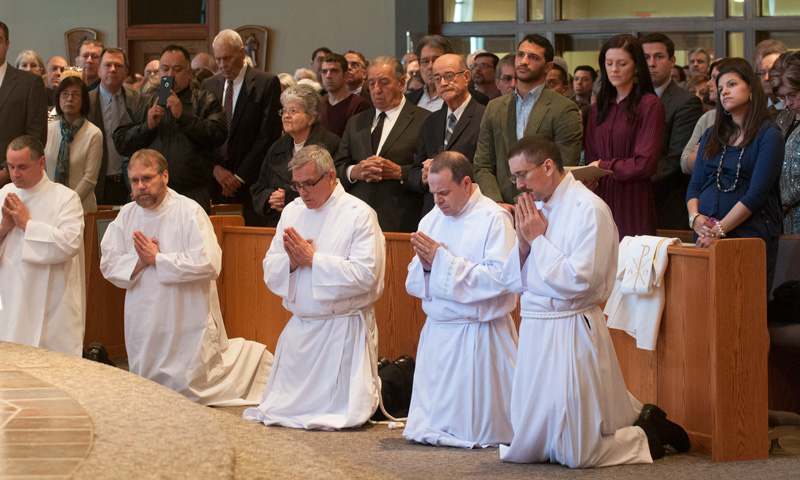
Editor’s note: Daniel Lloyd, a professor of religion, contributed the following column on the diaconate.
Deacons will continue to be an important topic in the Diocese of Charleston for at least two specific reasons. The first is that the diocese is ordaining permanent deacons every few years and new ordination classes are forming. Deacons, therefore, will continue to grow as a percentage of the clerics in the diocese, at least for the next handful of years.
The other reason comes from events in the worldwide Church. Back in 2002, a commission studied the question of women’s ordination to the diaconate. While that commission didn’t support the argument that women were ordained to the diaconate in the early Church the way men were ordained, it left the question of the possibility of women’s ordination to the permanent diaconate open to further investigation. Pope Francis, as many have heard, recently established a new commission to study, and hopefully clarify, this topic.
The Church has said unequivocally that it does not have the authority to ordain women to the priesthood. Nevertheless, many assume that if women are ordained deacons, then they can be ordained priests. This is not the case.
That being said, many who accept that women’s priestly ordination will not occur still believe that women should be ordained deacons for a variety of reasons. Some feel that it would be a way to recognize those women already serving the Church in innumerable capacities. Some think that women should have a direct voice in the Church’s hierarchy. Some think it is time to hear and see women participating in new liturgical ways, especially in officiating in the sacraments of baptism and marriage, as well as preaching.
The above reasons, however, do not get at the heart of how and why the decision will be made. The pastoral issues noted above are not the first stop in the conversation. Rather, the decision will need to begin with the Church defining the relationship of deacons to priests and bishops.
Since ordinations of deacons, priests, and bishops all fall within the single sacrament of “holy orders,” the question is about whether a deacon, like a priest, needs to represent the male, human reality which God became when He became the human man Jesus.
If the Church decides that the diaconate is tied to Jesus’ male humanity, then the Church will decide that it doesn’t have the authority to ordain women to the diaconate. If the diaconate is understood to be connected to Jesus’ ministry, but not necessarily to his life as a man, then the Church might decide that it has the potential to ordain women.
Only then will the conversation be about whether the Church thinks it is a good idea pastorally to go ahead with ordaining women. In either case, the Church has a lot of educating to do on the issue so that everyone understands what is, and isn’t, going on.
Daniel Lloyd is assistant professor of religion in the Department of Philosophy, Theology, and Religion at St. Leo University in North Charleston. He holds a BA in English and Philosophy from the University of Scranton, an MTS from Weston Jesuit School of Theology, and a Ph.D. from Marquette University. The Diocese of Charleston works with St. Leo on diaconate formation.
Miscellany file photo: In this file photo from Feb. 2016, Glenn Dudek, Mark Gray, William Hudson, Steven Olson and Roger Schonewald kneel during the Litany of Supplication during the diaconate ordination at St. Mary Magdalene Church in Simpsonville.


